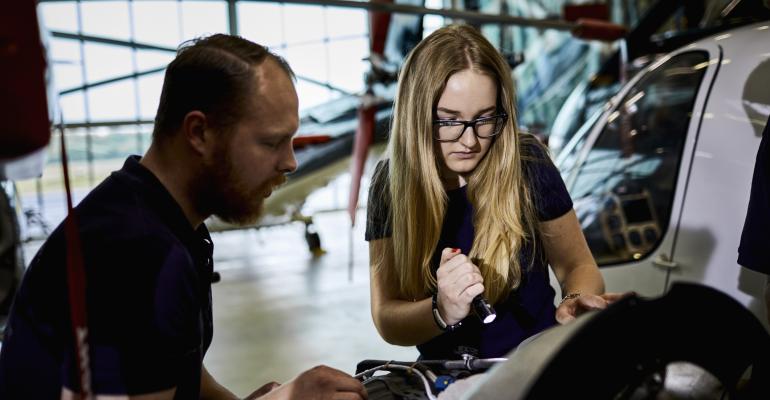While the shortage of service technicians gets a lot of press, another Fixed Ops area also finds managers struggling to fill vacancies – the parts department.
The pandemic was blamed for the shortage, but other factors now contribute to it, including an aging workforce that will deepen, says the Society for Human Resource Management. The number of working-age adults (between the ages of 15 and 65) will decline by an estimated 3% within a decade, reports SHRM.
“And that trend will continue beyond 10 years,” Svenja Gudell, chief economist at Indeed, tells SHRM. “It is a fundamental error to think that as COVID-19 recedes, hiring difficulties will evaporate. Deep-seated and long-term supply dynamics will continue to be a major force that creates a persistent gap between employer demand for new hires and the supply of candidates.”
That couldn’t come at a worse time as parts inventory shortages continue and demand for repairs rises. Demand for car parts and parts salespersons is expected to continue as growing numbers of older cars require repairs. Moreover, demand for ride-hailing services has shifted some public transportation use back to automobile services, further adding to the need for car parts in upkeep and maintenance, which should support demand for parts salespersons, according to the U.S. Bureau of Labor Statistics.
Some dealers struggle with the problem of staff shortages and wonder how to recruit and retain top fixed-ops talent for the parts department. Those struggling to find and retain good parts managers may want to consider ideas from panelists at Ted Ings’ “Back to the 80’s Fixed Ops Round Table.”
Here are some of the best ideas we heard:
Screen candidates for qualities besides technical expertise. Hiring managers want to look for Fixed Ops candidates with personalities that will meld with co-workers and customers. Check with past employers to confirm candidates’ reliability and professionalism.
Employees in the parts department are on the “front lines” of a dealership, says Jeremy Stephens, fixed operations director at Hiester Automotive Group, headquartered in Sanford, NC. Due to the constant customer contact, Stephens looks for personable, energetic candidates. “Working in parts is more of a sales role,” Stephens says.
Don’t just recruit from technical colleges or training programs.
Hiring technicians and others from top schools is great, but the competition for those graduates is fierce. Some dealers recruit high school students for vacancies in Parts Departments. Others look for those currently employed in service industries, such as restaurant servers, and discuss dealership opportunities that pay more than their current positions.
Michael Moore, fixed ops director at Nissan of Bowie, MD, says a friendly, efficient restaurant server caught his attention, and he worked to recruit her. She was “giving actual customer service to three or four of us,” he says, leading him to tell her, “I have a job for you.”
Listen to your service and parts staff.
Darryl Terrell, service and parts director at Matt Bowers Chevrolet in Metairie, LA, listens to team members’ goals and partners with them so they move up the career ladder. “I push that button,” he says. “I stay on top of them (and) push them to their limits.”
Show how employees can advance.
It’s wise to show dealership employment can extend beyond the Parts Department and other entry-level jobs. “I have a roadmap from lube tech to senior tech; it makes it super clear,” Moore says. “We track all employees, so they know where they are on the roadmap.”





